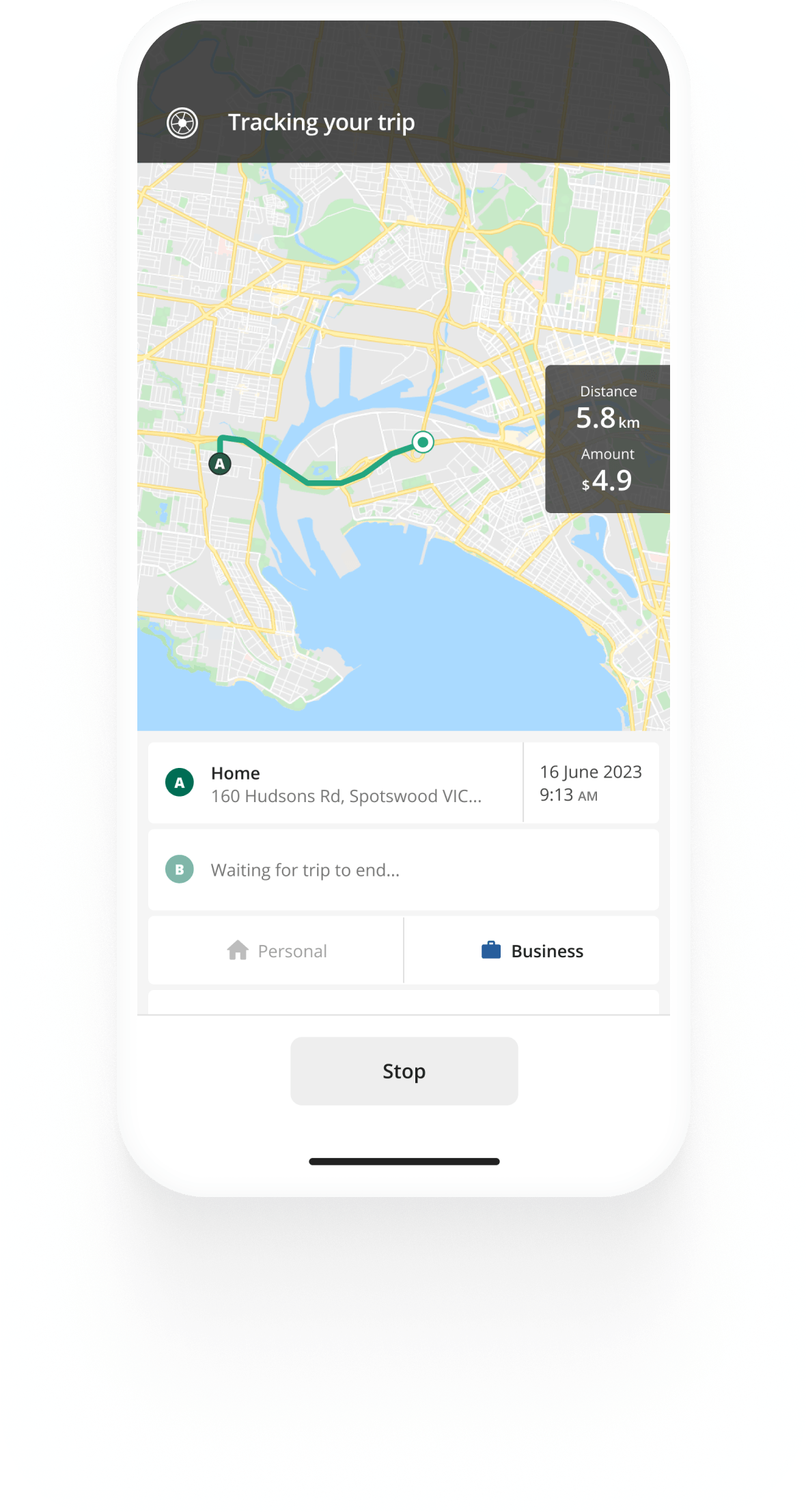Track mileage automatically
Get started.svg)
How to Claim Working From Home Tax Deductions
If you work from home in Australia, even if it’s part-time, you could be entitled to claim tax deductions. Your ability to claim depends on whether you have a dedicated home workspace or your home is your place of business.
Individuals who can claim work-from-home deductions
Anyone who performs some or all of their work duties from home may be eligible to claim work-from-home deductions. This doesn’t include briefly checking emails or taking work calls. Individuals who can claim include:
- Employees
- Freelancers
- Small business owners
You can only claim deductions if you prove that working from home incurs running expenses like heating, cooling or phone costs. You must provide records detailing these expenses when you put in your claim.
Types of work-from-home expenses you can claim
You can claim two types of work-from-home expenses: running and occupancy expenses.
Running expenses
These are the costs of using your home office. You can claim:
- Home office equipment (Computers, printers, and phones. If items cost up to $300, you can claim the total cost. For expensive items, you can only claim the decline in value.)
- Heating, cooling, and lighting
- Repairs and maintenance
- Cleaning expenses (only if you have a home office)
- Stationary and computer consumables (paper and ink)
- Phone and internet costs (you can only claim a portion of your monthly bill depending on how often you use your devices for work purposes)
Occupancy expenses
You can claim a portion of your rent, mortgage interest and rates, and home insurance premiums. However, you can only claim occupancy expenses if your home is your principal place of business and you have a dedicated work setup. You cannot always claim deductions if you are an employee.
You are eligible to claim occupancy expenses if:
- Your home is clearly identifiable as a business
- Your home is almost exclusively used for carrying out business
- Clients regularly visit your home
If you work from home, you must be able to prove that:
- Your income activities mean that you need a place of business
- You have to work from home as your employer doesn’t have an office
- The area of your home that you use for work is exclusively used for work purposes (like an office)


Kilometre tracking made easy
Trusted by millions of drivers
Automate your logbook Automate your logbook

Automatic mileage tracking and ATO-compliant reporting.
Get started for free Get started for freeCalculating your work-from-home deductions
The ATO provides two methods for calculating occupancy expenses: the actual cost method and the ATO shortcut method.
Actual cost method
This method involves calculating all the actual expenses you’ve incurred. You must keep detailed records and receipts for all the expenses you wish to claim.
In the below example, the individual works from home ten hours per week and has a dedicated home office:
- Desk decline in value $350 over ten years = $35 per year
- Chair: $150
- Electricity for ceiling light: 0.7c per hours x 10 hours per week x 48 weeks = $3.36 per year
- Heating/cooling: 9c per hour x 10 hours per week x 48 weeks = $43.20 per year
- Phone: $600 per year x 48 weeks/ 52 weeks x 40% = $221.54 per year
Total deductible amount: $453.10
ATO shortcut method
As of March 2023, the ATO allows you to claim a fixed rate of 67 cents per hour if you work from home. The rate covers all running expenses, such as power and internet.
For example:
The same individual works 10 hours per week for 48 weeks. So they could claim 67c x 10 hours x 48 weeks = $321.60
The ATO shortcut method is only worth it if working from home incurs minimal expenses. If you work from home full-time or need expensive equipment to work, the actual cost method is more advisable.
Record-keeping for working-from-home tax deductions
Keeping accurate records is necessary for claiming work-from-home tax deductions. You should keep:
- Receipts for all your home office equipment and expenses
- Diary entries that record your working hours and home office usage over at least a four-week time period
- Phone and internet bills that show your work-related usage
- Claiming your deductions
When lodging your deduction, you should calculate a percentage of your equipment and bills related to working from home. For instance, if you use your phone for work 40% of the time, you can only claim 40% of your expenses on the tax claim.
Remember that equipment solely used for work can be fully claimed as a tax write-off if it costs less than $300. If it costs more, you can claim its decline in value over the year.
Include all your relevant deductions when you lodge your tax return. Provide evidence for every expense you are claiming. If you don’t, your claim could be denied.

Tired of logging mileage by hand?
Effortless. ATO-compliant. Liberating.
Latest posts
- Hiring Employees as a Sole Trader
- How to Write Off a Car for Business in Australia
- Employers' Guide to FBT-Exempt Benefits
Related posts
ATO Mileage Guide
25 June 2024 - 5 min read
Learn about the rules of reimbursing employees for their car expenses or deducting expenses as an employee or self-employed individual.
Hiring Employees as a Sole Trader
15 April 2025 - 5 min read
How to hire employees as a sole trader in Australia and the main obligations and considerations in doing so.
How to Write Off a Car for Business in Australia
15 April 2025 - 2 min read
Don't miss out on writing off a car for business - it may be the largest deduction you can claim as a business owner. See the 2024/25 ATO rules.

.svg)
.svg)